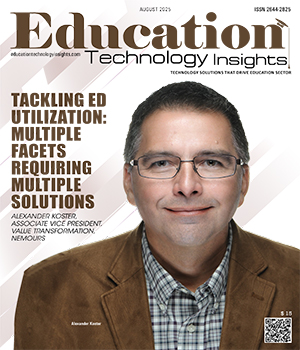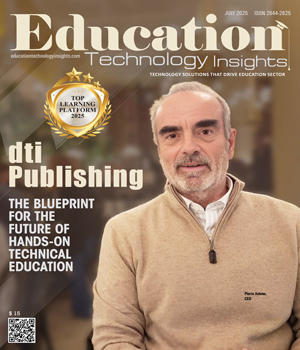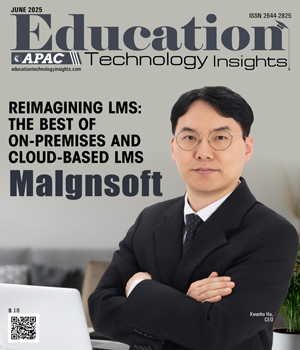THANK YOU FOR SUBSCRIBING
Be first to read the latest tech news, Industry Leader's Insights, and CIO interviews of medium and large enterprises exclusively from Education Technology Insights
Open Education - why we need it
Martin Ebner, Head of Education Technology, Graz University of Technology
 Martin Ebner, Head of Education Technology, Graz University of Technology
Martin Ebner, Head of Education Technology, Graz University of TechnologyOpen Educational Resources are learning resources with an open license, which allow the reuse, the remix or the republishment for any (learning & teaching) purposes. Firstly, coined in 2002 by the UNESCO some first higher education institutions followed these principles. But why do we need those Open Educational Resources - shortly OER - so urgent? Sometimes the strict copyright law, especially in middle Europe, seems to be the very first answer. Nevertheless, they are more arguments. We published this firstly in a national white paper (Ebner et al, 2016) where we find in summary 7 reasons for OER in higher education:
1. OER as a driver and enabler for open learning scenarios
2. Digital society needs free access to knowledge and open exchange
3. OER as a driver for cooperation between universities and the economy
4. OER as a driver of inclusion
5. OER as an aid to copyright issues
6. OER leads to high end learning resources
7. Open educational materials as a criterion and source for good teaching and enhancement for the qualification of teachers
“Even the pandemic shows us that we need in a fully digitalized learning and teaching environment learning resources which can be used in a digital way - to collaborate, to learn, to communicate”
These first thoughts lead to think about national strategies and how we should deal with public education in future. Even the pandemic shows us that we need in a fully digitalized learning and teaching environment learning resources which can be used in a digital way - to collaborate, to learn, to communicate. To make all this happen we are currently working in a national project called "Open Education Austria Advanced" (https://openeducation.at) on different topics:
1. A national wide search engine called OERhub
2. Local repositories where teachers can place their OER
3. Concept for OER certification for teachers as well as institutions
4. A teaching program how we can train teachers to make them knowledgeable about OER
5. Processes who OER can be (simply) produced
In summary this should help to educate our students as well as the society following the idea to transfer new knowledge fast from the university to the public. Open Educational Resources just follow consequently the movement of Open Access, Open Source, Open Data or Open Government. The future is not only digital, but also open to educate people in the best possible way.
Read Also
Embracing AI to Transform Online Learning
Navigating the Future of Higher Education IT with AI
Building Inclusive Digital Ecosystems Where Students Thrive
Cyber Preparedness: Protecting Students from Digital Dangers
Leading Inclusive and Smarter Learning
Redefining Student Success in the Digital Age

I agree We use cookies on this website to enhance your user experience. By clicking any link on this page you are giving your consent for us to set cookies. More info

However, if you would like to share the information in this article, you may use the link below:
www.educationtechnologyinsightsapac.com/cxoinsights/open-education-why-we-need-it-nid-1605.html





















